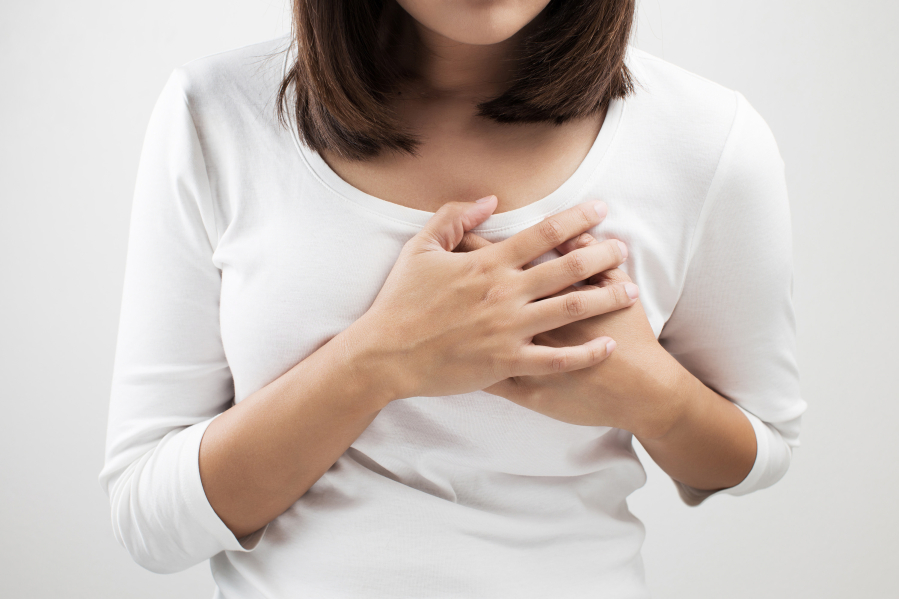Heart attack symptoms in women can be similar to those in men, but there are some crucial differences.
Women’s symptoms tend to be more subtle and may be more ambiguous. Along with being able to recognize possible heart attack symptoms, as a woman, it’s also important to understand personal risk factors for heart disease and to get help right away in the vent of a heart attack. Heart disease is the leading cause of death in both women and men in the U.S. And a 2016 research study found that women die more often than men from heart disease.
The importance of knowing what to look for when it comes to a heart attack can’t be overstated.
For example, chest pain is a common heart attack symptom in women, but it’s often not the predominant symptom or the only symptom. Women’s chest pain usually is not as severe as men’s chest pain.
Often the chest pain may be accompanied by other symptoms, such as shortness of breath, fatigue and nausea. In addition, the pain may not be just in the chest, but in the back, shoulder or neck, too.
There’s no clear explanation for why heart attack symptoms appear differently in women than they do in men. A few factors may play a role. In women, heart disease tends to affect the smaller cardiac vessels more often than in men. Tight artery blockages are not as common in women as in men.
Women’s vessels sometimes are smaller, and the vessel walls often are stiffer in women. But whether these factors are the underlying cause of the variation in symptoms between men and women is not well-understood.
There are some specific risk factors that affect only females. Women who have high blood pressure during pregnancy — preeclampsia — are at increased risk later in life for heart disease. After menopause, when estrogen levels drop, the rate of heart disease in women goes up.



